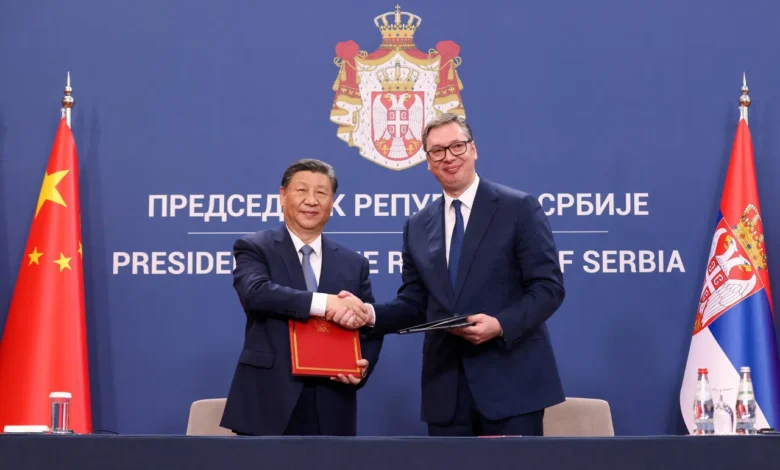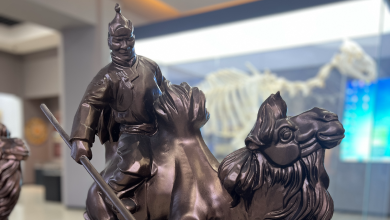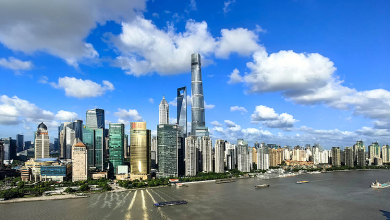China, Serbia chart ‘shared future’ as Xi Jinping visits Europe

CHINA and Serbia on Wednesday (May 8) agreed to follow a “shared future” as President Xi Jinping visited the Balkan country as part of his bid to forge stronger relations with allies at the edge of the European Union.
Xi is on his first European tour in five years, and the trip was seen as an effort to strengthen ties with eastern European countries that are pro-Russia and large recipients of Chinese investment. He will fly to Hungary later in the day.
“We are writing history today,” Serbian President Aleksandar Vucic told a large crowd that had gathered in front of the Serbian presidential palace to welcome Xi, applauding and chanting “China, China”.
The two countries signed 29 agreements promoting legal, regulatory and economic cooperation. Serbia will also become the first European country in years to enter into a free trade agreement with China when a deal signed last year comes into effect on Jul 1.
Vucic said that since 2020 China had been the single-largest investor in Serbia, and that its investment was up 30-fold over the past decade. The free trade deal will guarantee tariff-free exports for 95 per cent of Serbian products to China over the next five to 10 years, he said.
Xi said that China was ready to import more high-quality agricultural products from Serbia and would welcome more direct flights between Belgrade and Chinese cities.
GET BT IN YOUR INBOX DAILY

Start and end each day with the latest news stories and analyses delivered straight to your inbox.
Both leaders boast of an ironclad partnership. Along with Hungary, Serbia is Europe’s firmest supporter of China’s huge Belt and Road infrastructure project across parts of Asia and Europe.
“Serbia became China’s first strategic partner in central and eastern Europe eight years ago, and it becomes the first European country with which we shall build a community with shared future,” Xi said.
The two leaders said they would support each other’s sovereignty and territorial integrity, meaning that Serbia considers Taiwan, viewed by Beijing as a breakaway province, to be part of China, just as China considers Kosovo, which declared independence in 2008, as part of Serbia.
“We shall jointly confront hegemony and the politics of power,” Xi said.
Symbolism of the visit
Xi´s visit comes on the anniversary of the 1999 Nato bombing of the Chinese Embassy in Belgrade during a campaign against the former Yugoslavia to force late Serbian strongman Slobodan Milosevic to end a crackdown on ethnic Albanians in Kosovo.
Nato said the bombing, which killed three Chinese journalists and wounded 20 Chinese nationals, was accidental. It prompted outrage in China and an apology from then US President bill Clinton.
“The Chinese people appreciate the peace but will never allow that a historic tragedy repeats itself,” Xi said in an opinion article in the daily Politika on Tuesday.
Vucic said the two countries had agreed to establish an inter-governmental technology committee that would enable Serbia to get access to the latest technologies and use of artificial intelligence.
China owns mines and factories across Serbia and has lent billions for roads, bridges and new facilities, becoming Serbia’s key partner in much-needed infrastructure development.
Xi left France on Tuesday after a two-day trip during which he offered no major concessions on trade or foreign policy, even as President Emmanuel Macron pressed him on market access and Ukraine. REUTERS





